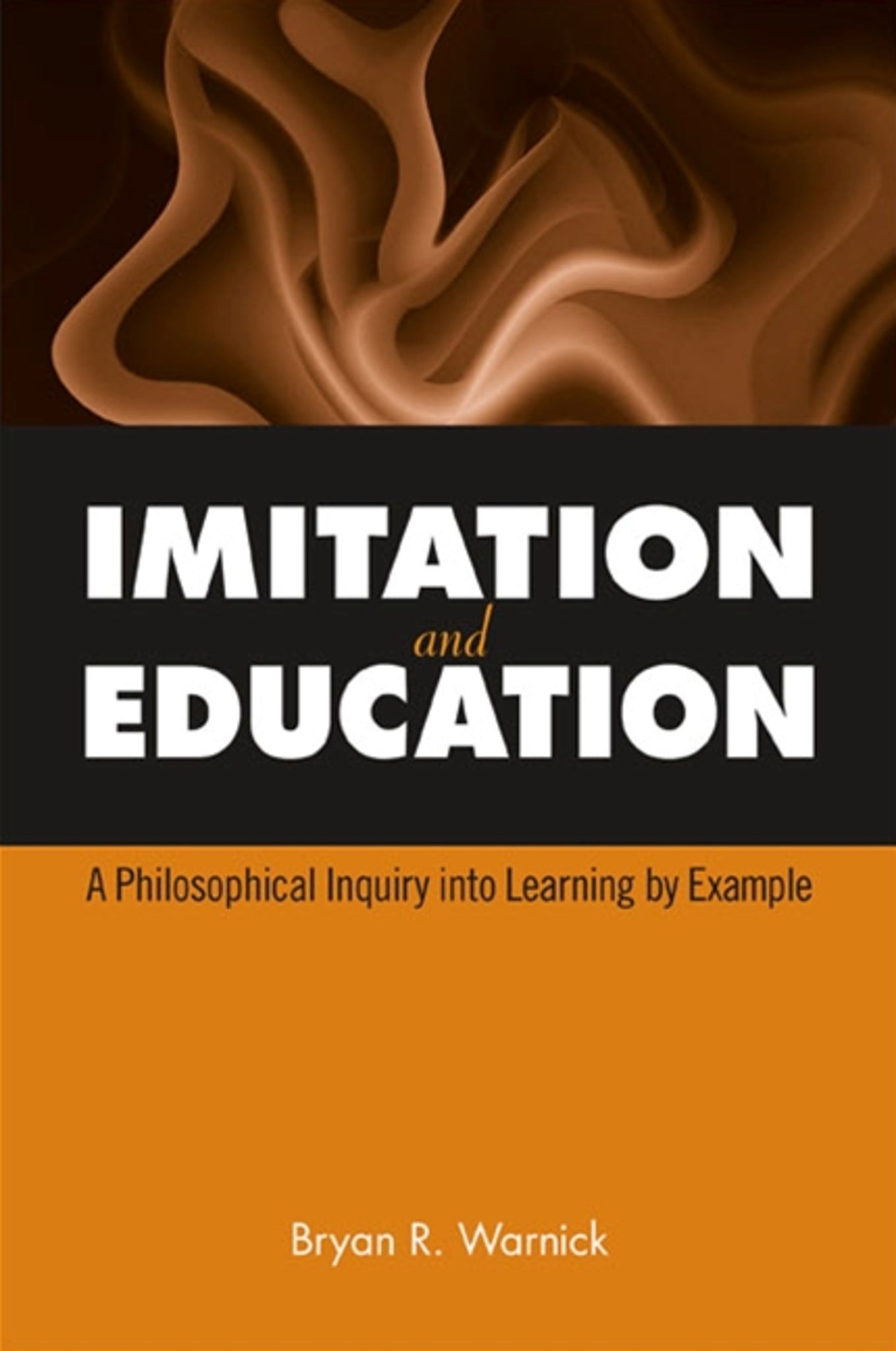We're sorry. An error has occurred
Please cancel or retry.
Imitation and Education

Some error occured while loading the Quick View. Please close the Quick View and try reloading the page.
Couldn't load pickup availability
- Format:
-
08 January 2009

Brings together current research in philosophy, cognitive science, and education to uncover and criticize the traditional assumptions of how and why we should learn through imitation.
Imitation and Education provides an in-depth reassessment of learning by example that places imitation in a larger social context. It is the first book to bring together ancient educational thought and startling breakthroughs in the fields of cognitive science, psychology, and philosophy to reconsider how we learn from the lives of others. Bryan R. Warnick addresses how we become exemplars, analyzes how exemplars inspire imitation, and assesses the meaning and value of imitation in education and society, including how teachers can better use examples and what should be done about problems such as the imitation of media violence. Warnick constructs a provocative, cautionary, yet hopeful account of learning by example that acknowledges the power of social contexts in shaping human lives.


"…[Warnick's] investigation of imitation is quite meticulous." — Journal of Aesthetic Education
"Warnick moves methodically through his argument, employing well-chosen examples throughout, and positions himself time and again to ask telling questions about both theoretical and practical consequences of exemplarity for education." — David T. Hansen, editor of John Dewey and Our Educational Prospect: A Critical Engagement with Dewey's Democracy and Education
"In an age of often simpleminded character education programs that urge role modeling, there is a real need for a book like this one, which both affirms the value of role modeling and also develops a critical version of imitation." — Kathleen Knight Abowitz, author of Making Meaning of Community in an American High School: A Feminist-Pragmatist Critique of the Liberal-Communitarian Debates
Acknowledgments
1. The Problems of Imitation and Human Exemplarity
Introduction2. The Historical Tradition of Human Exemplarity
The Mysteries of Learning by Example: An Outline
Imitative Models of Human Exemplarity: The Standard Model3. How Do People Become Examples?
Enlightenment Criticism and Nonimitative Exemplars
The Historical Tradition: An Initial Assessment
The Nature of Examples4. How Do Examples Bring Out Imitation?
How Does Something Become an Example?
Educational Implications
Conclusion
The Link between Action and Perception5. The Social Meanings of Imitation
The Sense of Self and the Imitative Sorting Mechanism
The Narrative-Self Theory of Imitation
The Social Nature of Narrative and Imitation
Educational Implications
Conclusion
The Meanings of Following an Example6. Imitation, Exemplarity, and Moral Reason
Imitation and Community Identity
Imitation, Initiation, and Education
Factors Influencing Imitative Meaning
Imitation and Communities of Learning
Conclusion
The Practical Objection to Imitating Examples7. How Can We Evaluate Human Exemplars?
A Social Response to the Practical Objection
The Theoretical Objection to Imitating Examples
A Social Response to the Theoretical Objection
Conclusion
Ancient Skepticism, Exemplarity, and Criticality8. A Social Analysis of Exemplarity and Imitation
The Turn to Practices and Exemplar Rotation
A Critical Education and Exemplarity: A Conclusion
Notes
References
Index



